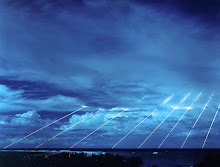I was asked that question the other day. The historical book answer that we all received in our high school history classes was that we became a superpower after World War II. I don’t believe this to be true, we became a superpower after World War I.
At the time we entered the war, in 1917, the Central Powers [German, Austria-Hungary, and the Ottoman Empire] were winning the war [recent victory]. The Allies were essentially loosing. The trench lines might have been stable but morale was low. Our European allies had lost all will and desire to fight. It had been a long and hard three years and the troops were willing to quit. It was within that environment that we entered the war. The Doughboys had arrived and our young, eager force of two million men gave hope and inspiration to a continent at war. It wasn’t our numbers that eventually turned the ride, it was our hope that renewed the fight within the Allies and encouraged them to press on. The lines stabilized and the Central Powers seeing the writing on the wall—as the Allies had only a year earlier—sued for peace. The American spirit made the world safe once again. Our intervention in Europe ended the “war to end all wars.” [Percentage of American favored Germany at beginning of war.] But we left. We returned to the United States, secure behind our oceans and continued living the life of hope. But hope was once again lost in Europe.
Totalitarianism was on the rise, the world economy was in shambles, and Hitler was Chancellor and offering hope for the German people. There was neither the will or the desire to stand up to Hitler. In the United States, appeasement was easy. We trust Hitler, retreat behind our oceans, and fix our own affairs. The isolationists wanted to keep us out of “Europe’s problem.” The lone voice in the storm was Winston Churchill. He recognized that appeasement would do nothing but buy time for Hitler, yet he was powerless to do anything alone—except speak. By 1940, when Chamberlain’s appeasement policy clearly failed, Churchill was the hope the British people needed. He became Prime Minister. The war which American tried to avoid, eventually left us no choice, and on 7 December 1941, American was drawn into World War II. Fighting the war on three fronts, we truly carried the world. Over $7.5 billion in aid was given as a part of the Lend-Lease Act—most of which we did not receive repayment for.
After World War II we stayed in Europe. We stayed because learned our lesson from World War I. We stayed because we feared totalitarianisms take-over of our European allies. We stayed but with it we brought our influence. We brought the same hope that lifted Europe and willed them to fight in World War I, this time hope seeped over the Wall and eventually brought an end to the empire we united against to fight. Critics of America belittle it by saying we are an empire. It is true. America is an empire of hope and ideas. The very values embedded in our Declaration of Independence are the very values that we have spread around the world. We spread them on the battlefield of World War I, through the liberation of Europe in World War II, and through jazz music to the Soviet Union. The immigration debate demonstrates the value of America—our country gives people hope. People risk their lives to get into the United States all for the hope of having a better life than their current one. Our empire of hope has spread throughout the world.
And yet, again, freedom and hope are under attack. The forces of tyranny and totalitarianism want to see American destroyed. They want to watch us crumble and fall as the Twin Towers did on the clear, September morning. Yet, now is the time for American to stand, united against the forces of evil as we have so many times in the past. Now is not the time for division and seclusion, but is the time for unity and action. In the movie Spiderman, Uncle Ben tells Peter: “With great power comes great responsibility.” The United States is a great power. And we do hold a giant responsibility. We stand for the freedom-loving peoples of the world. Our Constitution was not drawn to weaken a monarch; our Constitution was drawn to empower--the people, who are the government. Our principles don’t allow us to kill to silence a political enemy; our principles allow our enemies to speak out. Our responsibility is to stand on our principles and ensure that others can do the same. By retreating now in the face of tyranny we retreat from all the good we’ve stood for, all the hope we’ve spread, and we extinguish the light that shines in the darkness and calls people to our borders.


No comments:
Post a Comment